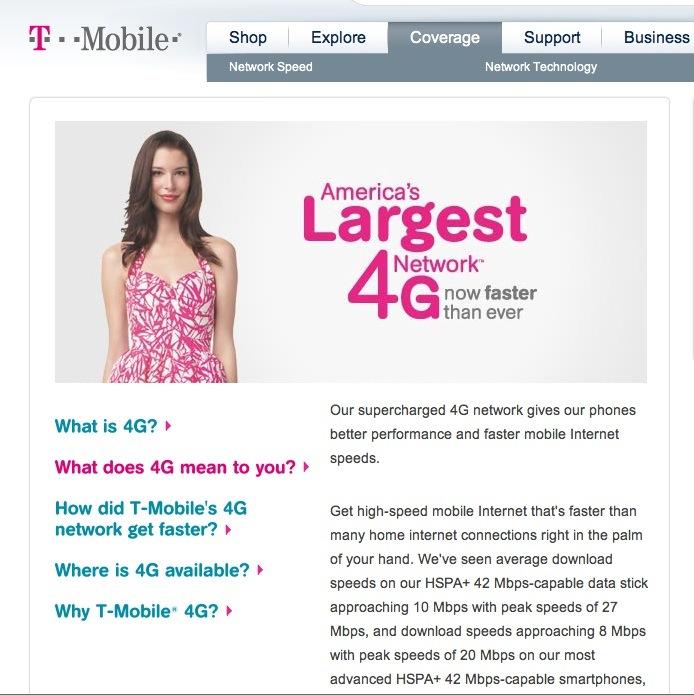AT&T, T-Mobile file plans to transfer $1 billion wireless airwaves
Along with the spectrum, AT&T will give T-Mobile's German owner Deutsche Telekom $3 billion in cash as part of its pre-negotiated terms for backing out of the acquisition, which was quashed by the US Justice Department and the FCC as threatening competition in the wireless market.
According to a report by the Wall Street Journal, Tom Sugrue, T-Mobile’s senior vice president for government affairs said "this additional spectrum will help meet the growing demand for wireless broadband services."
T-Mobile is the only carrier among the US' top 4 to have not articulated any plans for rolling out LTE 4G service, and is also hampered by its use of non-standard UMTS 3G service. That prevents the carrier from selling Apple's existing iPhone, which it has cited as a key reason for its poor performance.
T-Mobile has previously indicated that new chipsets could enable future iPhone models to support the company's existing 3G service. Without building out LTE however, T-Mobile could likely be left behind as support for the new networking standard begins to trickle into the mainstream.
Both T-Mobile and AT&T have referred to their existing HSPA+ networks as 4G, because they can offer data speeds compatible to LTE. However, LTE has future potential well beyond HSPA+.
Apple is expected to release an iPhone model capable of supporting LTE later this year. It has not previously supported LTE until now because of technical issues involving battery life and size.
Last April, Apple's chief executive Tim Cook explained in a conference call, "the first generation of LTE chipsets force a lot of design compromises with the handset, and some of those we are just not willing to make."
 Daniel Eran Dilger
Daniel Eran Dilger








 Amber Neely
Amber Neely
 Thomas Sibilly
Thomas Sibilly
 AppleInsider Staff
AppleInsider Staff
 William Gallagher
William Gallagher
 Malcolm Owen
Malcolm Owen
 Christine McKee
Christine McKee










24 Comments
Comparable, not compatible to LTE Speeds
And yet AT&T claims the initial justification for purchase of T-Mobile was AT&T's shortage of spectrum space
And yet AT&T claims the initial justification for purchase of T-Mobile was AT&T's shortage of spectrum space
All spectrum space is not created equal.
Tmoblie had ZERO spectrum to make the jump to LTE, meaning they were absolutely dead in the water. The spectrum space you are referring to is (IIRC) 3g and below spectrum in densely populated areas like Phily and San Fran and NY.
How is being blocked by the government considered "backing out of the deal?" Not that I have any sympathy for AT&T, but I'm just wondering how this is their fault.
Wow. Talk about an M&A screw-up of humongous proportions.
This will be taught in b-schools. Not as a shining example.